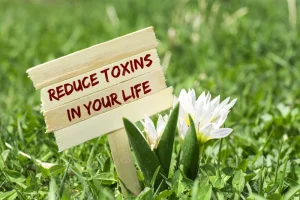
Please seek professional care if you believe you may have a condition. Quitting drinking is best done with support, along with a solid best vitamins for recovering alcoholics recovery plan. Take into account your unique situation and try to determine the factors that contributed to your drinking problem.
Can supplements interact with other medications or treatments used for alcohol addiction?

Ethanol, carbon tetrachloride, acetaminophen, and N-nitrosodimethylamine, as well as several hazardous compounds, are among these substrates. In this view, the ethanol-induced activation of cytochrome CYP2E1 appears to be one of the main mechanisms by which ethanol causes oxidative stress. Furthermore, when ethanol is oxidized by CYP2E1, it creates acetaldehyde, a highly reactive molecule that may contribute to ethanol’s toxicity 25. In addition, fatty acid ethyl esters (FAEE) synthase produces FAEEs via nonoxidative metabolism 22. A range of genetic, behavioral, and environmental variables contribute to alcoholism 2. Therefore, long-term alcohol use leads to lower nutrient consumption and can affect how the body uses this limited supply of nutrients.
- Taking certain supplements during detox may help prevent medical complications and support physical recovery.
- Several vitamins can help alleviate the symptoms of alcohol withdrawal.
- Omega-3 fatty acid supplementation may help to reduce the risk of relapse by improving overall mood and reducing inflammation in the brain.
- At six to twelve months, continued assistance helps to maintain sobriety while physical and mental health recover and new, better patterns are created.
- Furthermore, short-term intravenous vitamin C therapy (500 mg/day for five days) significantly improved serum vitamin C levels in chronic alcoholics with hypovitaminosis C 64.
Why alcoholics need liver supplements
Reduced stress and improved calmness can help mitigate the desire to turn to alcohol. Valerian root is known for its ability to promote relaxation and sleep, which can alleviate stress-related cravings for alcohol. Some people report vivid dreams or grogginess, so start with a low dose to gauge tolerance.

The Road to Recovery
Address these issues while being sure to repair your body from drinking. Here’s everything you need alcoholism to know about using herbal supplements for alcohol withdrawal. Although herbal alcohol detox isn’t a new concept, it hasn’t been widely accepted in the West as many experts and medical professionals turned to the use of pharmaceuticals for withdrawal.
Mineral and Antioxidant Supplementation in Alcoholism

Heavy drinking can disrupt the body’s ability to properly absorb B vitamins, which help to support heart function, healthy skin, digestion, and energy production. Restoring normal magnesium levels with a supplement can help support physical recovery from alcohol dependence. Detoxing from alcohol can be dangerous for people who have developed alcohol dependence as a result of alcohol abuse. Taking certain supplements during detox may help prevent medical complications and support physical recovery. Recovering alcoholics may need supplements because alcohol abuse can deplete the body of essential nutrients.

High doses of vitamin B6 over an extended period of time may result in peripheral neuropathy, a condition characterized by nerve damage and numbness in the extremities. Therefore, it is crucial to seek professional medical guidance and follow safety measures while incorporating vitamin B supplementation into the recovery journey. A study published in the Journal of Neurology, Neurosurgery & Psychiatry found that 60-80% of alcoholics are thiamine deficient. Thiamine is crucial for proper brain function and energy production. Deficiency in thiamine can lead to Wernicke-Korsakoff syndrome, a severe neurological disorder characterized by confusion, memory loss, and difficulty with coordination.

Coping with Cravings and Appetite Regulation
Zinc plays a role in neurotransmitter function and immune system health. Including magnesium-rich foods like leafy greens, nuts, and seeds, as well as zinc-rich foods like seafood, beans, and fortified cereals, can be beneficial. Thiamine, also known as vitamin B1, is particularly important during alcohol withdrawal. Chronic alcohol abuse can deplete thiamine levels in the body, which can lead to a condition https://ecosoberhouse.com/ called Wernicke-Korsakoff syndrome. Supplementing with thiamine can help prevent and treat this condition, as well as support cognitive function and nervous system health. Focusing on proper nutrition, including the consumption of omega-3 fatty acids and amino acids, can significantly aid in the alcohol recovery process.
- To stay in recovery and live a healthier, happier life, you need to try other things.
- Alongside herbal remedies, it’s essential to consume antioxidants to help neutralize free radicals—harmful molecules that can damage cells in your body.
- Ethanol is harmful to the human body and can cause toxicity and death when ingested in excessive amounts.
- When selecting antioxidant supplements, it is essential to focus on those that neutralize alcohol-induced oxidative stress.
The only way to protect the liver long-term is to eliminate or drastically reduce drinking. The good news is that, over time, you can repair your liver, regulate amino acids and retrain your brain to produce dopamine. In a related article, I share why these are the best vitamins and minerals for alcohol detox as well as some signs of deficiency. Through independent research, I have identified a number of supplements for detox and withdrawal that actually work to relieve these symptoms.
Alcohol abuse can lead to vitamin deficiencies, which can contribute to a range of health problems. By supplementing with vitamins, recovering alcoholics can help improve their overall health and reduce the risk of complications during the treatment process. Key vitamins for alcoholics to consider include thiamine, vitamin B complex, vitamin C, and vitamin D.